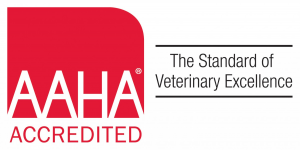October Newsletter: How a Coggins Test Can Detect Equine Infectious Anemia (EIA)
- Created in Newsletter Library

How a Coggins Test Can Detect Equine Infectious Anemia (EIA)
Equine infectious anemia (EIA) swept through North Carolina in late 2022, requiring euthanasia for 17 of 19 infected horses. Similar outbreaks have occurred throughout the country, although none were quite as large as the North Carolina outbreak. While it may not be possible to completely stop the spread of this deadly viral disease, the Coggins Test helps owners ensure that their horses are healthy and aren't EIA carriers.
What Is EIA?
EIA is a bloodborne virus that primarily sickens horses and ponies, although donkeys and mules can also be affected. Horse flies, deer flies, and other flies that feed on blood could spread EIA from an infected animal to your horse. Your horse may also contract EIA from used needles or contaminated medical instruments and equipment, or during a blood transfusion from an EIA-positive donor horse.
Symptoms vary depending on the amount of the virus present in the horse's body, but may include:
- Fever
- Lack of Energy
- Weight Loss
- Loss of Appetite
- Rapid Heart Rate
- Bloody Nose
- Rapid Breathing
- Jaundice
- Blood in Feces
- Red or Purple Spots on the Gums and Other Mucous Membranes
- Enlarged Spleen
- Swollen Legs
EIA affects a horse's blood, causing anemia and thrombocytopenia. Anemia is a condition where the body doesn't produce enough red blood cells. These cells distribute oxygen throughout the body and return carbon dioxide to the lungs. When your horse's blood doesn't contain enough oxygen, the animal may become lethargic and weak. Thrombocytopenia occurs when the number of platelets in your horse's blood drops. Platelets are blood cells that clot together to stop bleeding. Internal bleeding and hemorrhages could occur if your horse has a low platelet count.
Not all horses die from EIA. Those that survive the disease or only experience mild symptoms become carriers. Unfortunately, there is no effective treatment for EIA at this time.
What Is the Coggins Test?
The Coggins Test is a blood test that detects EIA antibodies in your horse's blood. Antibodies are proteins that identify and attack viruses and bacteria.
The test must be performed by a licensed veterinarian and sent to an accredited laboratory for analysis, according to Penn State Extension. You will be given a certificate that states your horse's EIA status, in addition to information about you, your stable, your horse, your veterinarian, and the date of the Coggins Test. The certificate is good for one year.
If the test is negative, your horse does not have EIA antibodies and has not been infected by the virus. A positive test means that your horse is a carrier of the virus and has been infected in the past. Positive test results will be shared with local, state, and national animal health officials. According to the American Association of Equine Practitioners, horses that test positive must be euthanized to prevent the spread of the disease or permanently quarantined and kept at least 200 yards from other horses.
A negative test is required if you plan to transport your horse across state lines or take it to a horse show or another event with horses. If you sell a horse, the buyer may ask to see the Coggins Test certificate. Certificates may also be required before breeding.
How to Reduce the Spread of EIA
You can lower your horses' chances of infection by:
- Using New, Sterile Needles for Injections
- Cleaning and Covering Open Wounds
- Using Safe Blood Products from Tested Donors
- Thoroughly Disinfecting Equipment, Bits, and Medical Equipment
- Quarantining Sick Horses
- Keeping New Horses Separated for a Few Weeks. It's a good idea to conduct your own Coggins Test after buying a horse.
- Implementing a Comprehensive Fly Management Program That Includes Fly Sprays, Traps, and Insecticides, in Addition to Promptly Mucking Stalls and Removing Manure.
It's also important to stay away from events that ignore requirements for health records or Coggins Test results, as North Carolina horse owners discovered during the 2022 outbreak. Many of the horses that contracted EIA were sickened after participating in unsanctioned horse races, according to a CBS 17 report.
Is it time for your horse's Coggins Test? Contact our office to schedule the test with the equine veterinarian.
Sources:
Penn State Extension: What Is a Coggins Test?, 8/2/2022
https://extension.psu.edu/what-is-a-coggins-test
American Association of Equine Practitioners: Equine Infectious Anemia
https://aaep.org/horsehealth/equine-infectious-anemia
CBS17: 17 of 19 Horses Euthanized as Infectious Anemia Disease in NC Spreads Across 9 Counties
UK Department of Animal and Food Sciences: Equine Infectious Anemia


